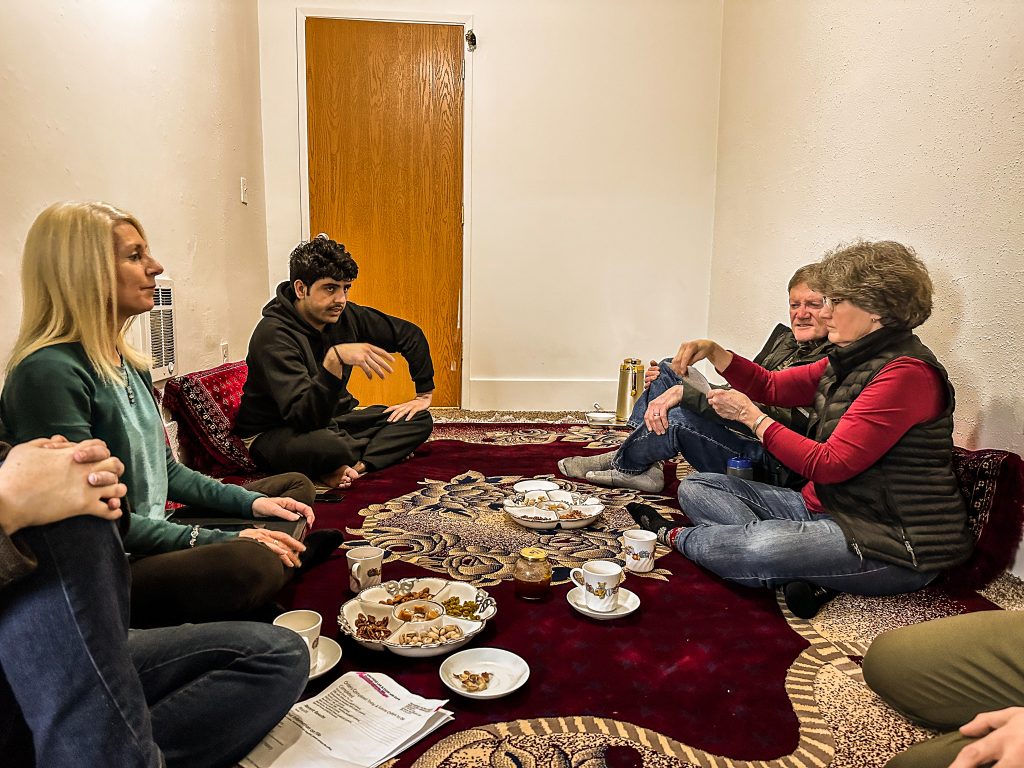Rich Versus Poor
During his short time of public ministry, Jesus was busy. Crowds of 5,000 plus gathered to hear him teach. People brought their sick to be healed, even tearing apart roofs to lower the lame at his feet. People pursued him from one shore to another, trying to anticipate where he would go. He only had three years in which to change the world. Surely, it would make sense for him to speak to the most influential people and make the most efficient use of his time. His disciples seemed to think so. They turned away parents seeking to bring their children. The crowds rebuked the blind man who was calling out to Jesus. With so little time, wouldn’t it make sense for Jesus to be selective about the people with whom he engaged?
But that doesn’t appear to be what he did.
Look at the end of Luke chapter 8. A leader in the synagogue – a powerful, influential man – comes to Jesus to say that his daughter of 12 is very ill. Wouldn’t healing this young woman be a way for Jesus to get in good with the religious leaders? Shouldn’t this be his priority?

Jesus agrees to go and begins to make his way there, but along the way, a woman in the crowd, a woman who has been bleeding for 12 years and has exhausted all her resources trying to find help, reaches out to touch him. The text says she had spent all she had with doctors who only made things worse, so she was poor. On top of that, a woman who was bleeding continually would be considered unclean, an outcast. She had nothing to offer Jesus. And, yet, Jesus not only healed her (“he realized that power had gone out from him he wanted to meet her.”) He stopped in the midst of a large crowd and asked, “Who touched me?” Realizing what had happened, she fell at his feet and told him the whole truth. He healed her. He saw her. He listened to her.
After this delay, friends of the synagogue leader, Jairus, come to tell him it’s too late. His daughter has died. But Jesus says, “Don’t be afraid. Just believe.” He tells the mourners at the house to leave, takes the girl by the hand and says to her, “Arise.”
Jesus did not show favoritism to Jairus, the man with power and wealth, but neither does he scorn him. To the outcast woman and to the religious leader, he gives freely and fully of his time and attention.
“You must not show special favor to poor people or great people,
but be fair when you judge your neighbor” ( Lev. 19:15).
Enemies & Strangers
In John chapter 4, Jesus has a long conversation with a Samaritan woman. At the time of Jesus, the Israelites hated Samaritans and called them “dogs” or “half-breeds.” The enmity between the two groups was deep and long-standing, dating back to the time of King Rehoboam (Solomon’s son) and the split between the northern kingdom and the southern kingdom. At the time of the split, the northern kingdom ceased to worship in Jerusalem. They built their own temple in the north. After the northern kingdom was conquered by the Assyrians, the Jews and the Assyrians intermarried and many began to worship the Assyrians’ gods alongside the Jewish God.
Later, the people of the southern kingdom were also carried off to Babylon, and when they returned, many Samaritans opposed them. In other words, they had lots of reasons to hate each other. They no longer considered themselves brothers but enemies.
And, yet, Jesus speaks to the Samaritan woman at the well. Again, he sees her, he knows her and he reveals himself to her, so that she might have living water, so that she might become a child of God.
Jesus again breaks down barriers when he tells the story of the Good Samaritan. An expert in the law wanted to test Jesus, and so he asked him, “What must I do to inherit eternal life?” Jesus replies with a question: “What is written in the law?” The man quotes from Deuteronomy and Leviticus: “Love the Lord your God with all your heart and with all your soul and with all your strength and with all your mind’; and, ‘Love your neighbor as yourself.’”
Jesus says he has answered well. This is true, but then the man asks, “Who is my neighbor?” The Bible says the man wanted to justify himself. He wanted to find a loophole or a rationale that would make him look good.
Jesus then tells the story of the Good Samaritan. His audience would have been expecting a Jew to be the hero of the story, rescuing the man who was beaten and left to die, but much to their consternation, Jesus makes a Samaritan the hero of the story.
At the end of the story, Jesus asks, “Which of these three do you think was a neighbor to the man who fell into the hands of robbers?’
And the man replies, “The one who had mercy on him.”
Jesus told him, “Go and do likewise.”
Questions to ponder:
- Are you more likely to show favoritism to the rich or to the poor?
- Who might Jesus use as the hero of the story in the Good Samaritan today?

